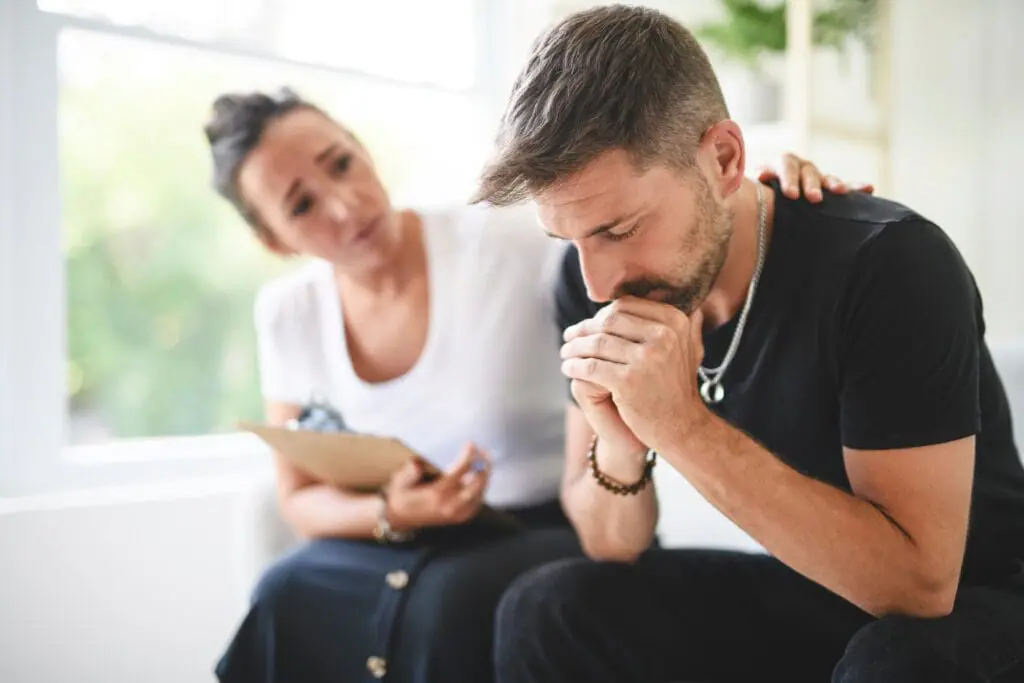Peer support has emerged as a critical component of successful recovery programs. With peer support, it becomes possible to have a unique space to share your experiences, struggles, and successes with others who truly understand what it’s like to battle against addiction.
What Is Peer Support in Addiction Recovery?
Peer support in addiction recovery involves assistance provided by people who themselves have experienced addiction and are on their recovery journey. The support can be formal through structured programs and support groups or informal in situations like community support networks or one-on-one mentorship.
Some reasons peer support holds so much value in addiction recovery include:
- Empathy and shared experiences: One of the most significant aspects of peer support is the sense of shared experiences. When you’re around other people who have lived through addiction, they can offer not only understanding but empathy and real-world advice. These can be insights that professionals who have yet to experience addiction first-hand may not be able to provide.
- Hope and role modeling: Especially in the early days of addiction recovery, seeing peers navigating it successfully can inspire hope and provide concrete positive outcomes. Seeing others succeed can motivate you to keep up with your recovery process.
- Social support: Social support networks are critical in recovery because isolation is a major risk factor for relapse. When you have a community of people who understand your unique challenges, they can provide you with needed support during difficult times.
- Accountability: Peer groups provide accountability to help you manage and maintain your recovery goals, which can happen through regular meetings, check-ins, or just having someone who understands your journey.
The Evidence Regarding Peer Support
Research supports social networks as a practical part of addiction recovery.
Studies have shown participants in peer support groups are more likely to reduce substance use and maintain sobriety. These groups’ shared experiences and accountability play a major role in their effectiveness.
Engaging with peer support groups is associated with improved psychological well-being, and participants often report lower depression and anxiety levels and higher self-esteem and confidence.
Research highlights that people who participate in peer support groups have higher rates of sustained recovery, contributing to long-term success.
These groups are also cost-effective, requiring fewer resources than professional treatment options. They can be implemented in many settings, making them highly accessible to many people.
Peer support is a very important element of comprehensive addiction recovery programs, serving to enhance the effectiveness of other treatment methods and provide a layer of support to uniquely address the challenges of overcoming addiction.
Peer Support in Addiction Treatment Programs
When you’re in a formal addiction treatment program, whether that’s on an inpatient or outpatient basis, a lot of what you go through will involve elements of peer support.
For example, many addiction treatment programs make group therapy a core component. A professional facilitates the sessions, but the participants’ sharing and interaction drive them.
Treatment programs may also incorporate 12-step and other support group models in recovery plans. For example, when you’re in a rehab program, you may engage with support groups like Alcoholics Anonymous (AA), Narcotics Anonymous (NA), or non-12-step programs like SMART Recovery.
After completing a formal treatment program, you could stay involved with the treatment center’s alumni program. This program connects former clients to events, online groups and meetings, so they always have a support system and can give back by supporting other people.
You may, for a period, live in sober housing, which is a structured and supportive environment with peers also committed to sobriety and recovery.
Continued Peer Support After Treatment
What’s beneficial about peer support as part of maintaining recovery is that you can continue throughout your life and not just in a formal rehab program. There are so many ways you can get valuable support and maintain your recovery, including:
- Support groups: These are very widely available. The most commonly recognized options are 12-step programs, which use a structured system to help you achieve and maintain sobriety. These are anonymous and community-driven support environments. There are also non-12-step groups, like SMART Recovery or Secular Organizations for Sobriety (SOS), which offer a non-spiritual recovery approach focusing on science and self-empowerment.
- Online forums: There are dedicated online communities, including websites and apps, that allow you to connect with others from around the world who are recovering and sharing similar experiences to what you might be going through. You can also meet people through social media groups.
- Local community events: Local community centers and churches will often host support group meetings and events that are sobriety-related and open to the public. Community centers also hold recovery workshops and seminars.
- Peer mentoring: Groups like AA and NA include mentorships where experienced sponsors provide one-on-one support to newer members, called sponsees, and guide them through the recovery process and the program’s specifics. On an informal basis, you can create an arrangement where you either offer or receive support one-on-one.
- Recovery coaching: Professional recovery coaching can give peer support from people who work as professionals now but have also gone through their own addiction and recovery journey.
- Therapeutic communities: There are longer-term sober living residential environments where everyone commits to sobriety and following a set of rules, providing a supportive network that helps you maintain a substance-free lifestyle.
You also can’t underestimate the value of having friends and family who uplift, support, and encourage your recovery.
Each option offers benefits and can be tailored to your needs, ensuring peer support is an accessible, versatile part of your addiction recovery.
Receiving peer support in addiction treatment and recovery can enhance the recovery process through practical advice, emotional support, and shared experiences.
If you’d like to learn more about addiction treatment programs for yourself or someone you care about, our team at San Diego Detox can help. Feel free to reach out at any time.







